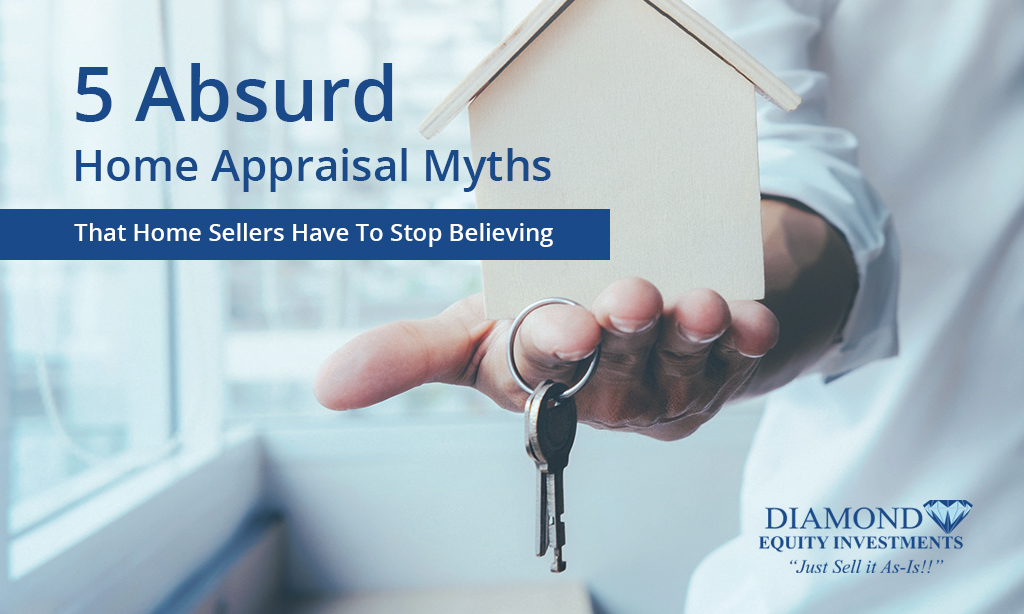If you’re hoping to sell a house fast in Georgia, the appraisal is a major hurdle you’ve got to cross. Whether you’re a first-time home seller or a seasoned pro who has a few successful sales under your belt, the appraisal process can be intimidating and scary. A lender will require a formal appraisal to ensure they are not lending more money than the property is worth.
That being said, there are tons of misconceptions about home appraisals, and that’s why we’ve put together this list of home appraisal myths. Go through it to demystify the process.
#1: An Appraisal Is The Same As A Home Inspection
This is the granddaddy of all home appraisal myths. At the outset, an appraisal and an inspection may seem the same, since both shield the buyer from hidden damages. Both home inspectors and appraisers look around your home to assess its condition, but their jobs are different.
The home inspector looks to uncover things that are problematic. The appraiser, on the other hand, doesn’t find faults with your home but instead works to determine its objective value. They’ll consider factors like square footage, location, and the home’s condition to get a final value.
#2: The Buyer Appoints The Appraiser
Even though the buyer pays for the appraisal, the appraiser doesn’t work for the buyer. The mortgage lender hires them. This is because the lender is an indirect investor in the property, as they fund the buyer’s mortgage. They ensure that the lender is not trapped in an unsuitable investment. That being said, professional appraisers are ethical and unbiased. They do not make up false figures.
You can skip the appraisal process if you’re selling your home directly to cash home buyers in Georgia. This is because cash home buyers in GA will pay for the property out of pocket. For this reason, there’s no need for mortgage lenders to be involved in the process, hence no appraisals.
#3: The Bigger The Home, The Higher The Appraisal Value
Imagine this scenario: a mega-sized home built in a rundown neighborhood or right next to a junkyard. Although your house is bigger than average-sized family homes, it won’t fetch a favorable appraisal because it’s in a bad location. Your home’s appraisal value is determined by several factors, and size is but one of them. So the assumption—bigger the house, larger the value—is false.
#4: The More Features, The Higher The Appraisal Value
So you invested in a fancy kitchen that ran you about $100,000. That doesn’t mean your home’s appraisal value will increase by $100,000. I know, it’s a hard pill to swallow, especially if you’ve recently completed home renovations to profit more from the sale.
Consider another example: Let’s say you’ve spent a fortune improving your home décor. If nearby properties aren’t as good as yours, your renovation efforts will likely not add much to the home’s value. If you’re looking to increase your home’s selling price, you need to focus on quantifiable aspects, like footage and the number of rooms.
#5: All Home Improvements Increase The Home’s Value
You might have added a fancy home theater to your home. But if the renovation was done a few years back, and the technology you have in the home theater is old and outdated, it won’t add to your home’s value. So, before you do a full-scale renovation, it’s a good idea to identify suitable home improvement projects that’ll add value.
Features like a modern/updated kitchen, new flooring, and a state-of-the-art HVAC system will add value to your home, while other amenities like a home gym won’t boost the value all that much.

